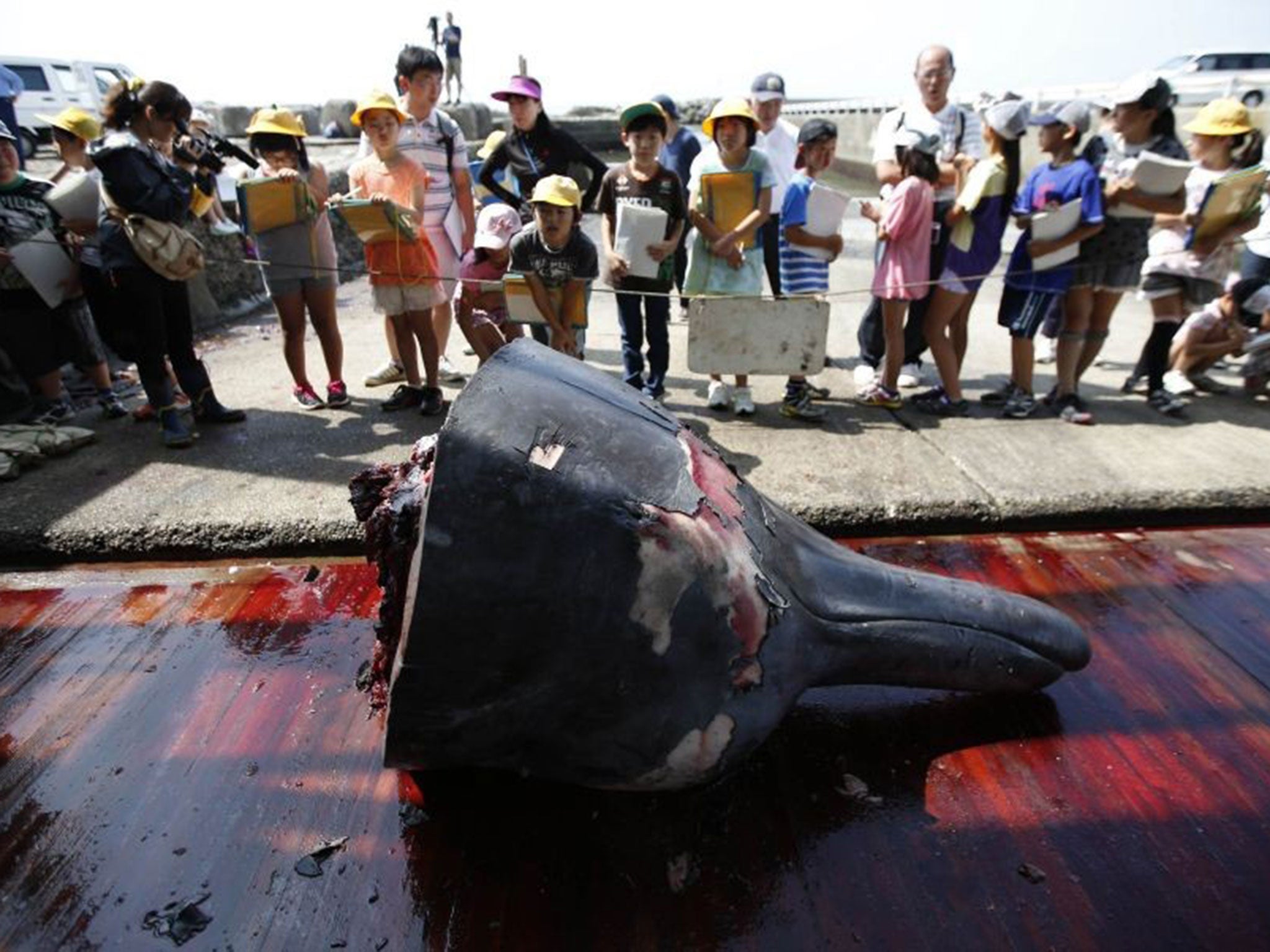Japanese town marks start of whaling season by carving up animal in front of a crowd of school children
Next generation given demonstration of centuries-old tradition

Your support helps us to tell the story
From reproductive rights to climate change to Big Tech, The Independent is on the ground when the story is developing. Whether it's investigating the financials of Elon Musk's pro-Trump PAC or producing our latest documentary, 'The A Word', which shines a light on the American women fighting for reproductive rights, we know how important it is to parse out the facts from the messaging.
At such a critical moment in US history, we need reporters on the ground. Your donation allows us to keep sending journalists to speak to both sides of the story.
The Independent is trusted by Americans across the entire political spectrum. And unlike many other quality news outlets, we choose not to lock Americans out of our reporting and analysis with paywalls. We believe quality journalism should be available to everyone, paid for by those who can afford it.
Your support makes all the difference.To mark the start of Japan’s whaling season, workers in the coastal town of Minamiboso, 62 miles south of Tokyo, carved up one of the animals before a crowd of school children and residents and handed out free samples of its fried meat.
The annual event took place in the town’s Wada district, a week into Japan’s first coastal whaling season since a global court halted the better-known Antarctic whaling in March.
Though environmentalists condemn whaling, Japan maintains it is an important part of its food heritage. Wada is proud of its centuries-old traditions and takes pains to hand them on to its children.
A class of 10-year-olds from the town’s primary school stood transfixed as workers hauled a nine-metre whale, killed the previous night, up a concrete ramp.
“This part is the fat. If you’re scared, close your eyes,” said Yoshinori Shoji, president of the Gaibo Hogei whaling company, as one of the workers sawed off the whale’s skin and fat, exposing the dark meat and entrails.
“They’re so skilful,” some of the children said. But others gasped in horror.
Whale is a rarity on most Japanese tables, but Wada residents regularly eat it at home and in school lunches.
“It’s so good,” said Taishi Makino, one of the pupils.
In Wada, souvenir shops, restaurants, supermarkets and whale speciality stores line the streets, selling whale meat products and dishing up everything from whale sushi to fried whale.
“Here in Wada we eat whales. Every family eats whale at least once during the summer whaling season,” said Michiyo Masuda, the students’ teacher. “If we are eating whales, we have the responsibility to see and learn how they’re prepared.”
At her school, 10-year-olds study the biology of whales, the history of whaling and how to cook the meat.
“For us, whale is food. Whaling is a good tradition, and I want to pass on the trade before I die,” said Mr Shoji, who gives talks in schools and whose firm processes and sells whale.
Japan’s international whaling programme suffered a blow when in March the International Court of Justice ordered a halt to its “scientific whaling” programme in the Antarctic. Japan agreed to cancel whaling in the Southern Ocean for 2014-2015.
Join our commenting forum
Join thought-provoking conversations, follow other Independent readers and see their replies
Comments